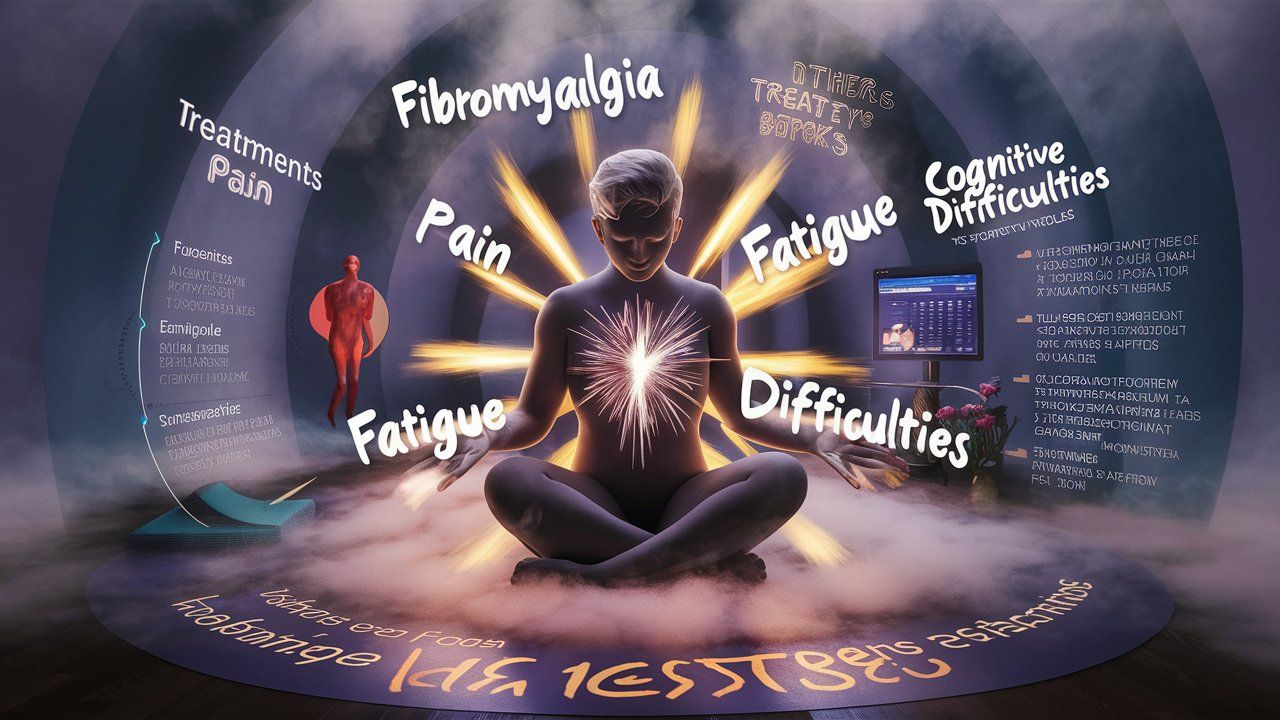 How CBT Can Help Manage Symptoms
How CBT Can Help Manage Symptoms
Fibromyalgia is a mysterious and often misunderstood condition that affects millions of people around the world. Characterized by widespread pain, fatigue, and cognitive difficulties often referred to as “fibro fog,” this chronic disorder can drastically impact the quality of life. While there’s no cure for fibromyalgia, various treatments can help manage its symptoms. One promising approach is Cognitive Behavioral Therapy (CBT). Let’s dive into what fibromyalgia is and how CBT can be a game-changer for those struggling with this condition.
CBT is a type of talk therapy that helps people change the way they think and behave. It’s based on the idea that our thoughts, feelings, and behaviors are interconnected, and we can alter our emotions and actions. Share on XWhat is Fibromyalgia?
Fibromyalgia’s symptoms are many and varied. The hallmark of the disorder is chronic, widespread pain, often described as a constant dull ache affecting numerous parts of the body. But the pain doesn’t stop there. People with fibromyalgia often experience extreme fatigue, even after a full night’s sleep. This fatigue can be so debilitating that it interferes with daily activities and makes simple tasks feel like climbing a mountain.
 The Challenge of “Fibro Fog”
The Challenge of “Fibro Fog”
Then there’s the infamous “fibro fog”—a term used to describe the cognitive difficulties that accompany fibromyalgia. Those suffering from fibro fog might have trouble focusing, experience memory lapses, and struggle with simple mental tasks. It’s like your brain is wrapped in a thick, unyielding fog that refuses to lift.
Living with Fibromyalgia
Given these challenges, it’s no surprise that living with fibromyalgia can be incredibly tough. But here’s the silver lining: there are ways to manage these symptoms, and Cognitive Behavioral Therapy is at the forefront.
People with fibromyalgia often experience extreme fatigue, even after a full night’s sleep. This fatigue can be so debilitating that it interferes with daily activities and makes simple tasks feel like climbing a mountain. Share on XWhat is CBT?
CBT is a type of talk therapy that helps people change the way they think and behave. It’s based on the idea that our thoughts, feelings, and behaviors are interconnected, and by changing negative thought patterns, we can alter our emotions and actions. For someone with fibromyalgia, this means learning how to manage pain, cope with fatigue, and improve cognitive function through structured, goal-oriented sessions.
Managing Pain with CBT
One of the most significant benefits of CBT for fibromyalgia patients is its focus on pain management. Chronic pain can take a toll not just on the body but also on the mind. It’s easy to get caught in a cycle of pain, negative thoughts, and depression. CBT helps break this cycle by teaching individuals how to reframe their thoughts about pain. For example, instead of thinking, “This pain is ruining my life,” CBT encourages thoughts like, “This pain is challenging, but I have strategies to manage it.”
Practical Tools for Daily Challenges
Moreover, CBT can provide practical tools to handle the day-to-day challenges of living with fibromyalgia. Patients learn techniques such as pacing—breaking tasks into smaller, more manageable chunks to avoid overexertion—and relaxation exercises to reduce stress and improve sleep. These skills can make a world of difference in managing fatigue and enhancing overall well-being.
CBT is a type of talk therapy that helps people change the way they think and behave. It’s based on the idea that our thoughts, feelings, and behaviors are interconnected,. Share on X Addressing Emotional Hurdles
Addressing Emotional Hurdles
Let’s not forget the emotional aspect. Fibromyalgia can be an emotional rollercoaster. The frustration of dealing with persistent pain and fatigue, coupled with the cognitive struggles of fibro fog, can lead to feelings of helplessness and depression. CBT addresses these emotional hurdles head-on. By promoting positive thinking and problem-solving skills, it helps patients regain a sense of control over their lives.
It’s no surprise that living with fibromyalgia can be incredibly tough. But here’s the silver lining: there are ways to manage these symptoms, and Cognitive Behavioral Therapy is at the forefront. Share on XTackling Fibro Fog
But what about fibro fog? Can CBT really help with those cognitive difficulties? The answer is a resounding yes. CBT’s structured approach includes techniques to improve concentration and memory. For instance, patients might be taught how to use reminders, create lists, and employ other organizational tools to combat forgetfulness. These strategies can help clear the mental haze, allowing individuals to think more clearly and function more effectively.
CBT in Practice
It’s also worth noting that CBT isn’t just about talking—it’s about doing. Patients are often given homework assignments to practice what they’ve learned in therapy. This might include keeping a pain diary, practicing relaxation techniques, or challenging negative thoughts. These exercises reinforce the skills learned in therapy and help integrate them into daily life.
 How Long Does it Take to See Results?
How Long Does it Take to See Results?
Now, you might be wondering, “How long does it take to see results?” The answer varies from person to person, but many people start noticing improvements within a few weeks of starting CBT. However, like any therapy, consistency is key. Regular sessions and continued practice of CBT techniques can lead to long-term benefits.
Complementary Treatments
In addition to CBT, other treatments can complement the management of fibromyalgia symptoms. These might include medications, physical therapy, exercise, and alternative therapies such as acupuncture and yoga. A comprehensive treatment plan that includes CBT can provide a well-rounded approach to managing fibromyalgia.
Fibromyalgia is a complex and challenging condition, but it’s not insurmountable. Cognitive Behavioral Therapy offers a beacon of hope for those grappling with its many symptoms. By changing the way we think about pain and equipping us with practical tools to manage fatigue and cognitive difficulties, CBT can help individuals with fibromyalgia lead fuller, more manageable lives.
So, if you or someone you know is struggling with fibromyalgia, consider exploring CBT as part of your treatment plan. It might just be the key to unlocking a brighter, more hopeful future.




